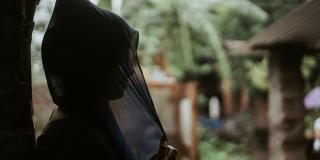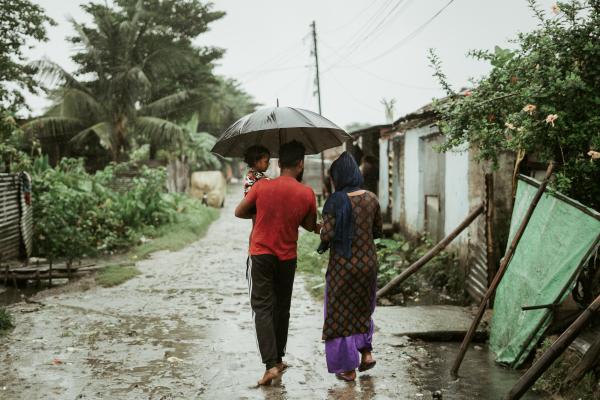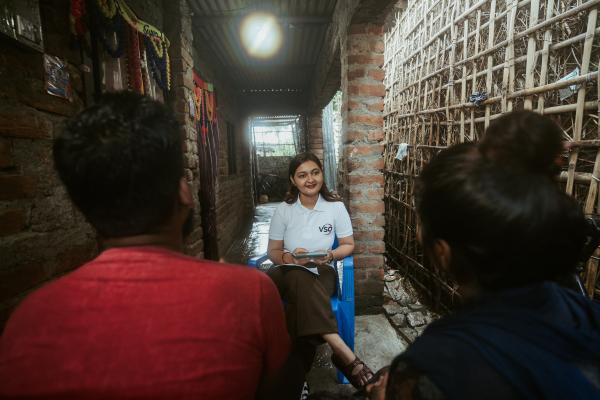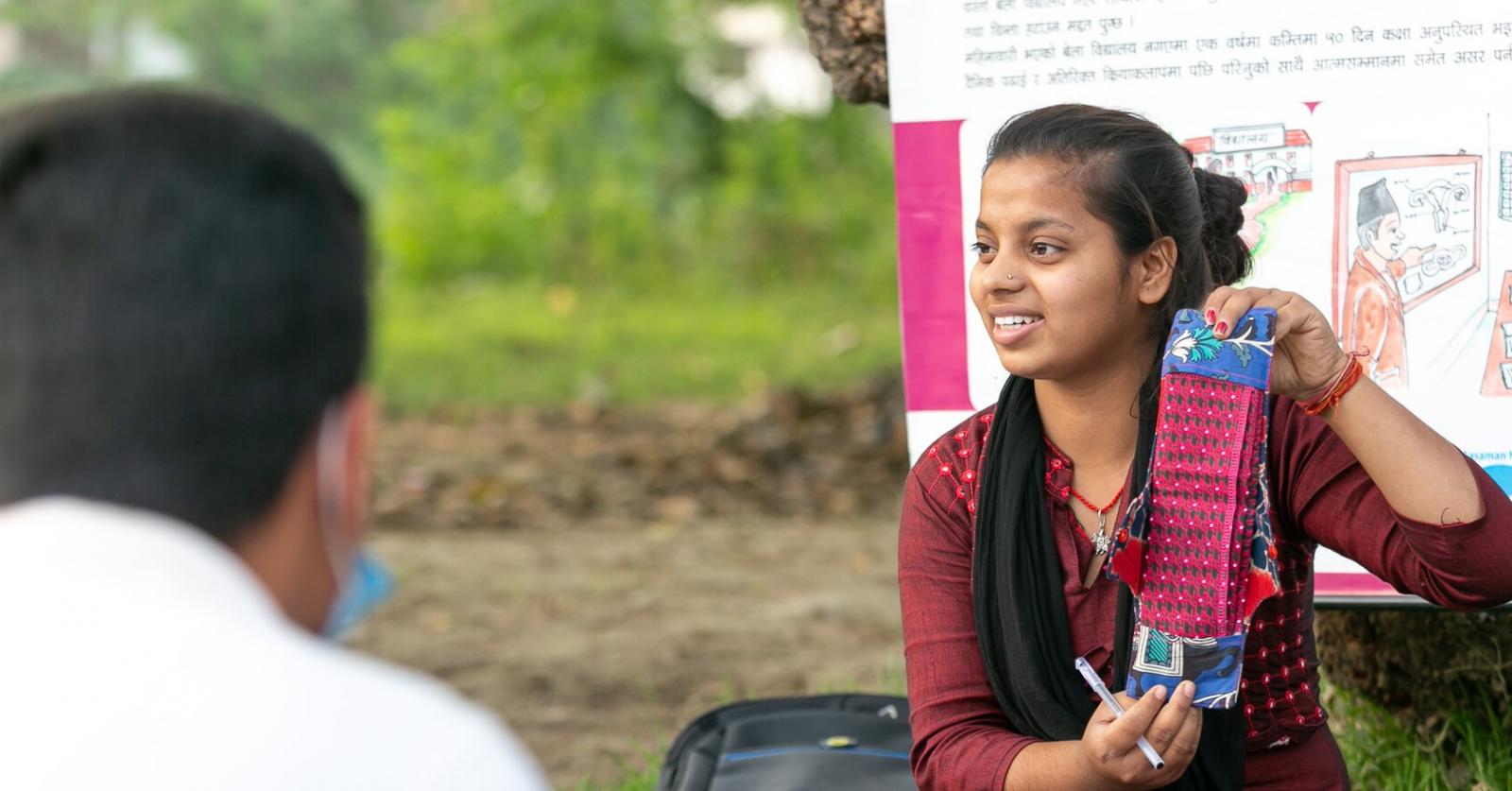
In Nepal, many women face discrimination and violence. It is not uncommon for girls to leave school earlier; their education is curtailed and 33% of them are married by the age of 18.
As a result, early childbirth is very prevalent and many women end up having to take care of the children, denying them their own income. Without education or their own money, they’re more vulnerable to domestic violence. Often, they also don’t know what their rights are or where they can turn for help.

For women from the Dalit community, abuse and prejudice are even more of a reality. Dalits make up approximately 13.8% of the population in Nepal and are discriminated against based on caste and "untouchability." Not only are the women treated poorly by higher-caste people in the system, but also by people within the same caste, including their in-laws.
This was the case for couples like Kalinda* and Ram* who live with their infant son in Ram’s family home. In addition to marital problems, Kalinda had a bad relationship with her in-laws:
I wasn't allowed to leave the house and had to do the housework all on my own. They didn't even want to have dinner with me."
Women like Kalinda experience other challenges too, as Dalit men often take out the frustrations associated with poverty and oppression on their wives.
Nisha, a VSO volunteer, elaborates, "Although caste discrimination is illegal in our country, it still occurs. I find it horrible to see how Dalits are socially excluded. Their economic opportunities are limited because they can only practise certain professions, such as shoemaker, sweeper or blacksmith."
Harnessing the power of conversation to promote equality
Now, with your support, volunteers like Nisha are helping to change this narrative by delivering ten-week couple session programmes.
“During these sessions, couples can discuss issues such as sexual and reproductive rights, equality between men, women and effective communication. The couples also reflect on harmful norms within their community. In addition to the couples' sessions, we organise meetings for families of the couples, schoolchildren, and local organisations so the rest of the community is involved,” Nisha explains.
The couples are also taught about who they can go to for different issues i,e, domestic violence and health-related issues.
Bringing together different castes

In the group meetings, couples talk about discrimination. Different castes come together, which don't normally convene. Kalinda explains, "As a Dalit, I was often not allowed into spaces with higher castes. They didn't even want to eat the food that we had prepared. Since the meetings of VSO there is much less discrimination."
A positive transformation
Since the couples’ sessions Kalinda and Ram are already seeing a positive change. Kalinda says, "My in-laws have accepted me as a full family member. They help in the household and I am so happy that I can now leave the house." Kalinda adds, "Ram and I can now talk frankly talk to each other about, for example, our sex life or my menstruation."
Ram and Kalinda are also sharing their knowledge with fellow villagers. Ram says:
"A few days ago a woman with a child asked me, 'You attended those sessions, haven't you? My husband beats me and my son all the time. I don't know how to get help.' Thanks to the knowledge I had gained, I was able to refer her to the right social workers."
*Pseudonyms have been used to protect the identities of those mentioned.

Support us with a donation
Read more

Transforming lives through education: Geoffrey’s VSO legacy
With a deep belief in the transformative power of education, Geoffrey from Norfolk, UK, has devoted his life both in the UK and abroad to making education more accessible for all.

A ripple of change: how VSO volunteers are transforming communities
Every act of volunteering begins with a choice — a decision to act out of a desire to make a difference. Across the world, VSO volunteers are proving that one spark of action can ignite something much bigger.
